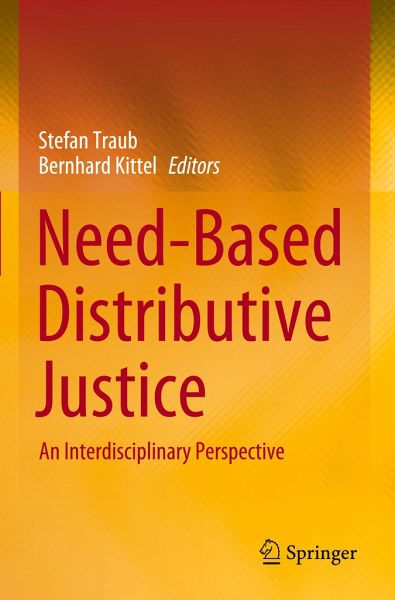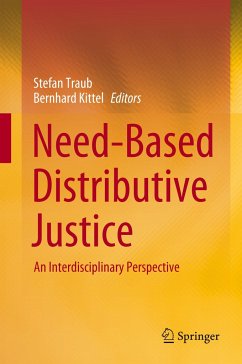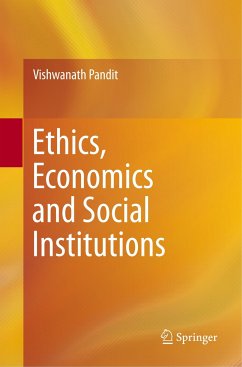
Need-Based Distributive Justice
An Interdisciplinary Perspective
Herausgegeben: Traub, Stefan; Kittel, Bernhard
Versandkostenfrei!
Versandfertig in 6-10 Tagen
121,99 €
inkl. MwSt.

PAYBACK Punkte
61 °P sammeln!
This book explores the foundations and potential of a theory of need-based distributive justice, supported by experimental evidence. The core idea is that need-based distributive justice may have some legitimatory advantages over other important principles of distribution, like equality and equity, and therefore involves less dispute over the distribution and redistribution of scarce resources.In seven chapters, eleven scholars from the fields of philosophy, psychology, sociology, political science and economics outline the normative and positive building blocks of such a theory by critically ...
This book explores the foundations and potential of a theory of need-based distributive justice, supported by experimental evidence. The core idea is that need-based distributive justice may have some legitimatory advantages over other important principles of distribution, like equality and equity, and therefore involves less dispute over the distribution and redistribution of scarce resources.
In seven chapters, eleven scholars from the fields of philosophy, psychology, sociology, political science and economics outline the normative and positive building blocks of such a theory by critically reviewing the literature on distributive justice from their respective disciplinary perspectives. They address important theoretical and practical issues concerning the rationality of needs identification at the individual level and the recognition of needs at the societal level. They also investigate whether and how the dynamics of distribution procedures that allocate resourcesaccording to the need principle leads to social stability, focusing on the economic incentives that arise from need-based redistribution. The final chapter provides a synthesis and outlines a framework for a theory of justice based on ten hypotheses derived from the insights presented.
In seven chapters, eleven scholars from the fields of philosophy, psychology, sociology, political science and economics outline the normative and positive building blocks of such a theory by critically reviewing the literature on distributive justice from their respective disciplinary perspectives. They address important theoretical and practical issues concerning the rationality of needs identification at the individual level and the recognition of needs at the societal level. They also investigate whether and how the dynamics of distribution procedures that allocate resourcesaccording to the need principle leads to social stability, focusing on the economic incentives that arise from need-based redistribution. The final chapter provides a synthesis and outlines a framework for a theory of justice based on ten hypotheses derived from the insights presented.














